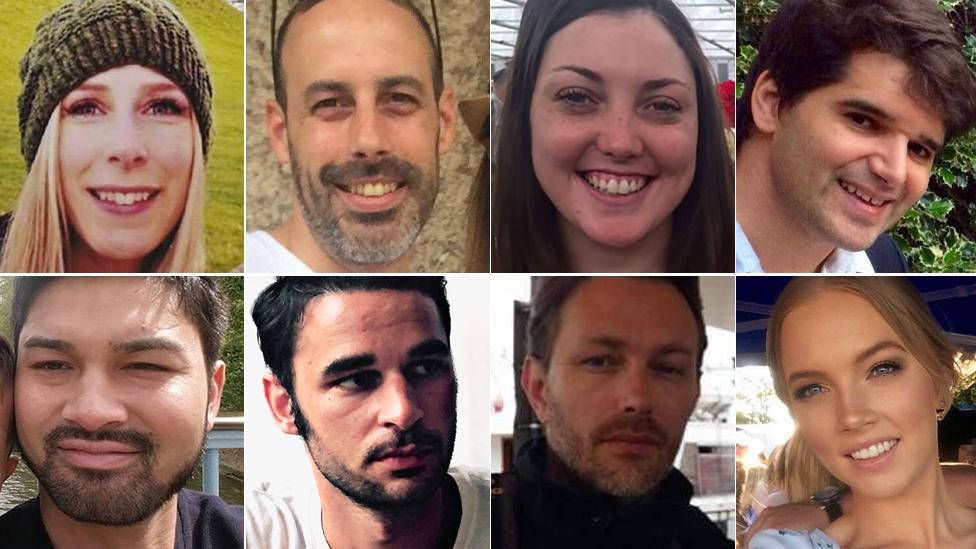Minute's silence for London Bridge terror attack victims
- Published
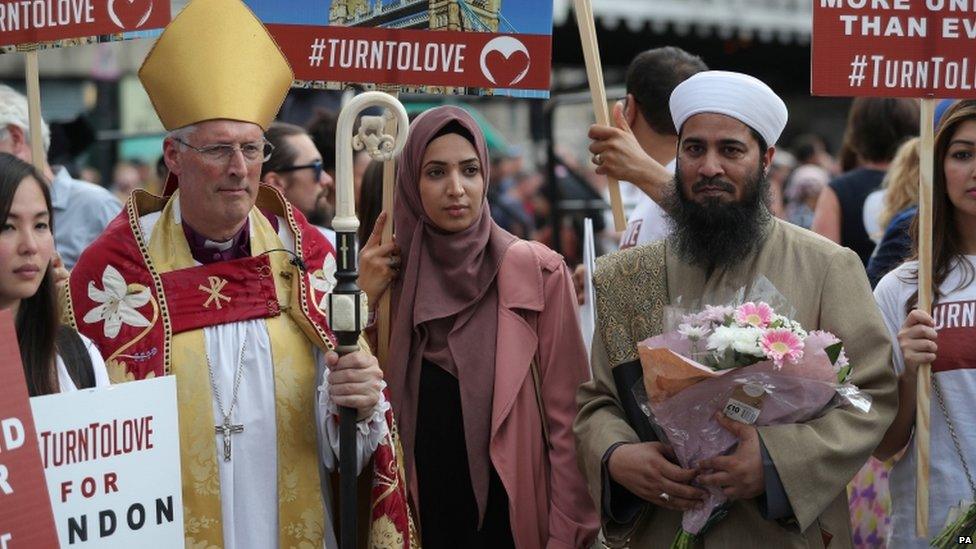
The Bishop of Southwark joined members of the public at London Bridge
A minute's silence has been honoured and a church service held in memory of those murdered in the London Bridge terror attack, exactly a year ago.
Eight died and 48 were injured by three men who drove into pedestrians, then stabbed people in Borough Market.
Their loved ones lit candles at the Southwark Cathedral service, which was attended by the prime minister and members of the emergency services.
An olive tree was planted using compost from floral tributes.
At the cathedral, Dean of Southwark, the Very Reverend Andrew Nunn, read the names of those killed in the attack.
He praised the "dedication" of the emergency services and prayed for their "continued safety and protection".
"Love is stronger than hate, light is stronger than darkness, and life is stronger than death," he said.
The dean said the olive tree, which was planted in the cathedral grounds, would be a reminder of the importance of communities coming together to stand against violence.
Theo Ancient, an actor and local resident who survived the attack, told the congregation: "At ten in the evening, darkness falls in the worst possible way.
"In a few minutes, everything changes, though it will be hours before we'll know the true cost."
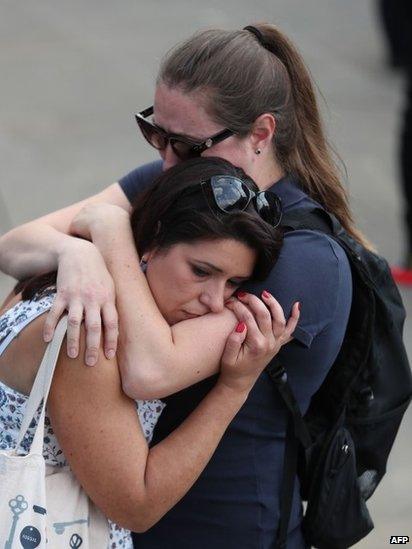
It was a day of high emotion at London Bridge
Adele Morris, a local councillor, said: "The terrorists wished nothing but death on this place. Instead, they made us think and talk in ways that are very much alive."
Mayor of London Sadiq Khan gave a reading from Psalm 77 at the service, which was also attended by Labour leader Jeremy Corbyn.
A procession then made its way to Southwark Needle, at the southern end of London Bridge, where relatives laid flowers and the minute's silence was held.
Peter John OBE, leader of Southwark Council, told the assembled: "Last June we experienced one of the darkest days in our borough's history.
"Today we come together to demonstrate that we are strong and united in the face of evil."
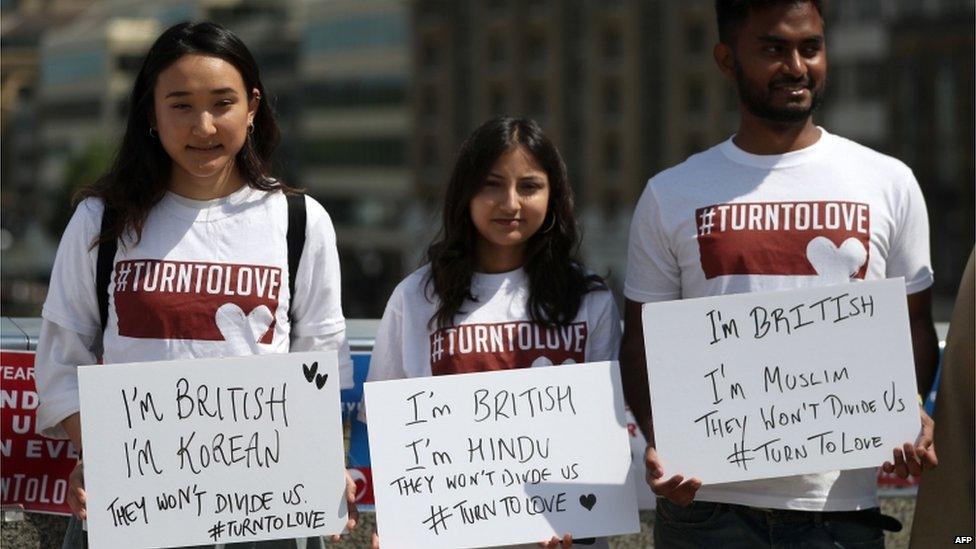
People of different religious and ethnic backgrounds gathered on London Bridge and urged the public not to be divided
Later, the words #LondonUnited will be projected onto the bridge and a digital book of hope will be available at Southwark Cathedral throughout the weekend for the public to sign.
Mustafa Field, director of the Faiths Forum For London, said: "We were all shocked by the horrific attack.
"It is important we come together as a community and combat hatred and bigotry through love."
Before the commemoration, Prime Minister Theresa May decried the attack as a "cowardly attempt to strike at the heart of our freedoms".
She added: "Our resolve to stand firm and overcome this threat together has never been stronger."

At the scene
Alex Regan, BBC News
Holding a bouquet of lilies, Lucy Fisher watches as hundreds of people enter Southwark Cathedral, metres away from where her cousin's life was taken.
James McMullan, 32, was one of the eight people who died on 3 June.
"It was a terrible time," she says.
Nearby, Borough Market - usually heaving with tourists - is quiet.
"It's my favourite market and I'm used to the hustle and bustle of it," says Robyn Hayes, while watching people going into the service. "It's very eerie hearing the quiet, with the church bells on top of that."
As the 700 guests walk from Southwark Cathedral to the other side of London Bridge, the crowds fall still.
When the minute's silence is observed, the only noise is the sound of trains arriving and departing from the station.
After families of the victims lay flowers at Southwark Needle, the crowd dissipates and observers return to their everyday lives.

Earlier on Sunday, Home Secretary Sajid Javid confirmed the security services were to get 2,000 extra officers as part of a strategy to boost the UK's counter-terrorism efforts.
Speaking to the BBC's Andrew Marr Show, Mr Javid vowed to make sure the UK had all the resources needed "to fight the terror threat".
He said the threat was "top of my mind" and "something I think of every day".
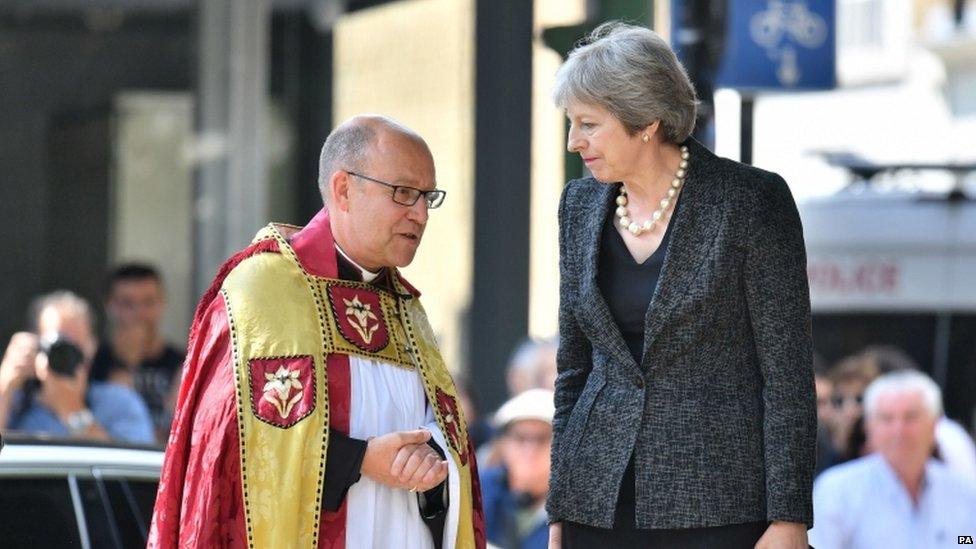
Prime Minister Theresa May was greeted by the Dean of Southwark Andrew Nunn at the service
In addition to boosting security services officers, which was first proposed in 2015, Mr Javid said there would be changes to how intelligence was used.
"MI5 will be sharing much more of its information with other organisations," he said. "Not just counter terrorism, but neighbourhood policing and local government.
"This would make sure there is a much higher chance of finding extremists and disrupting plots a lot earlier on."
- Published3 June 2018
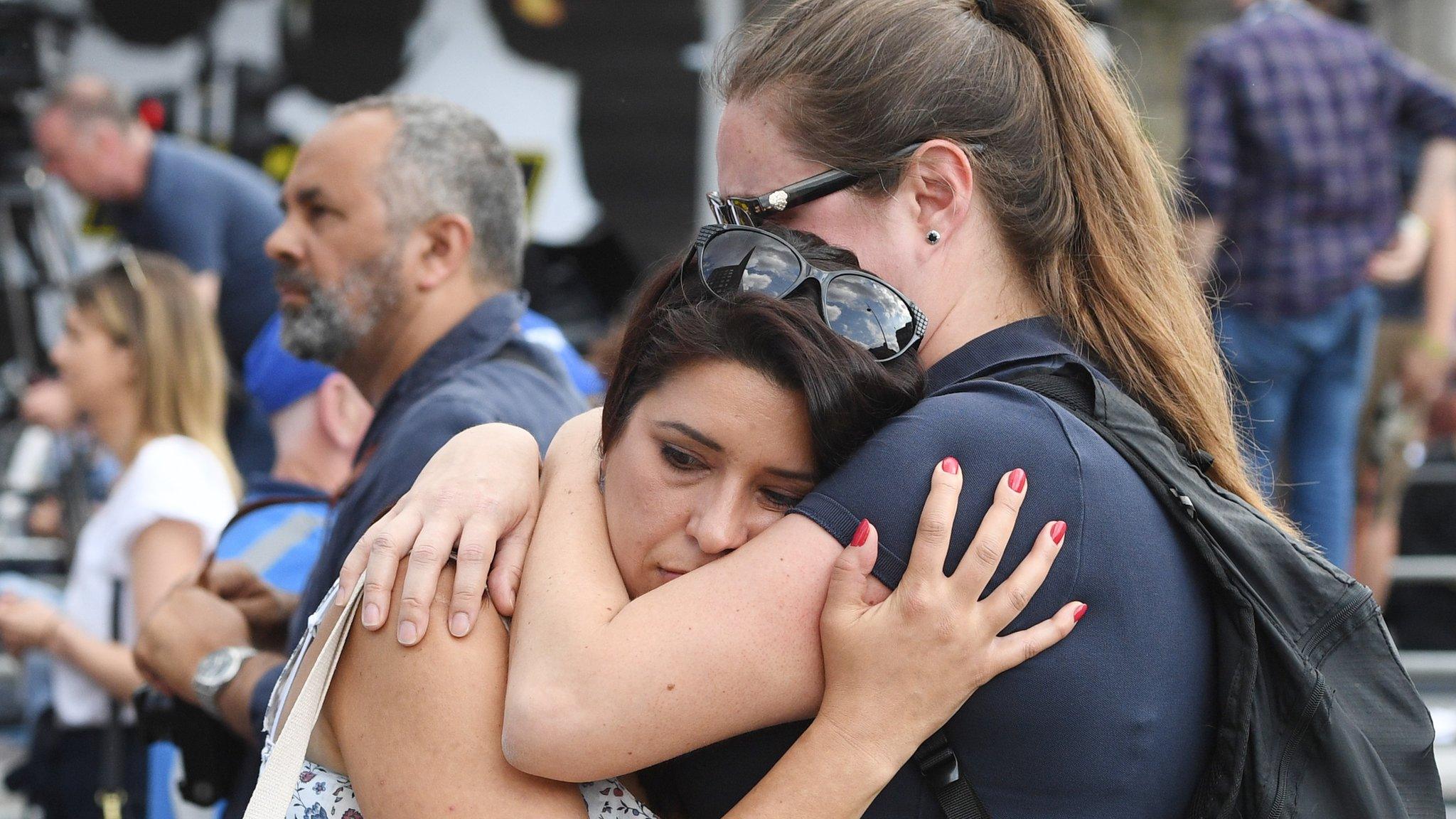
- Published2 June 2018
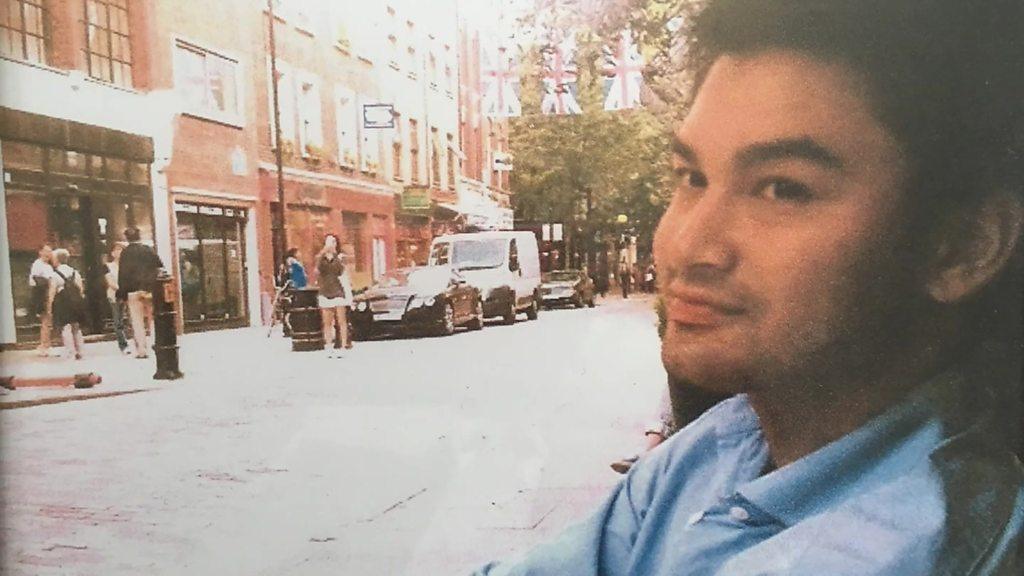
- Published1 June 2018
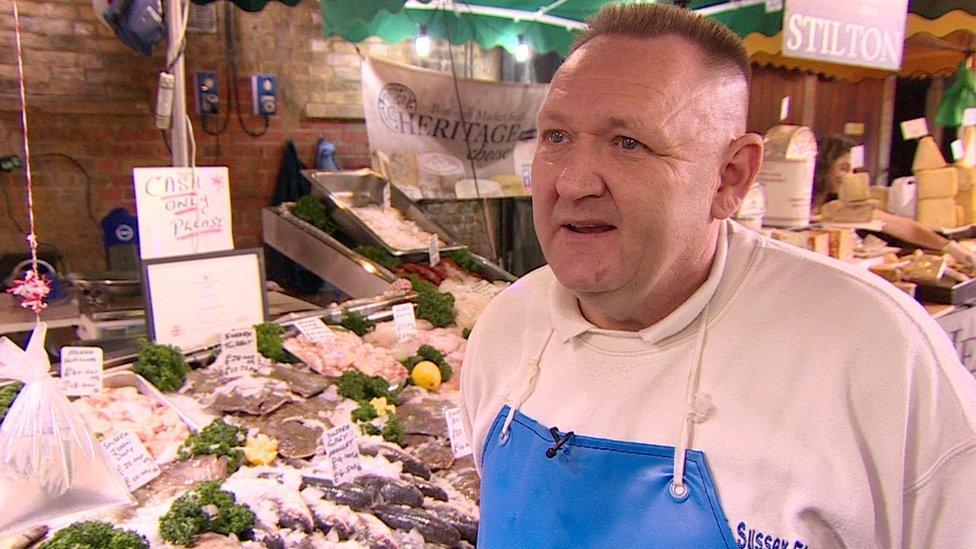
- Published3 May 2019
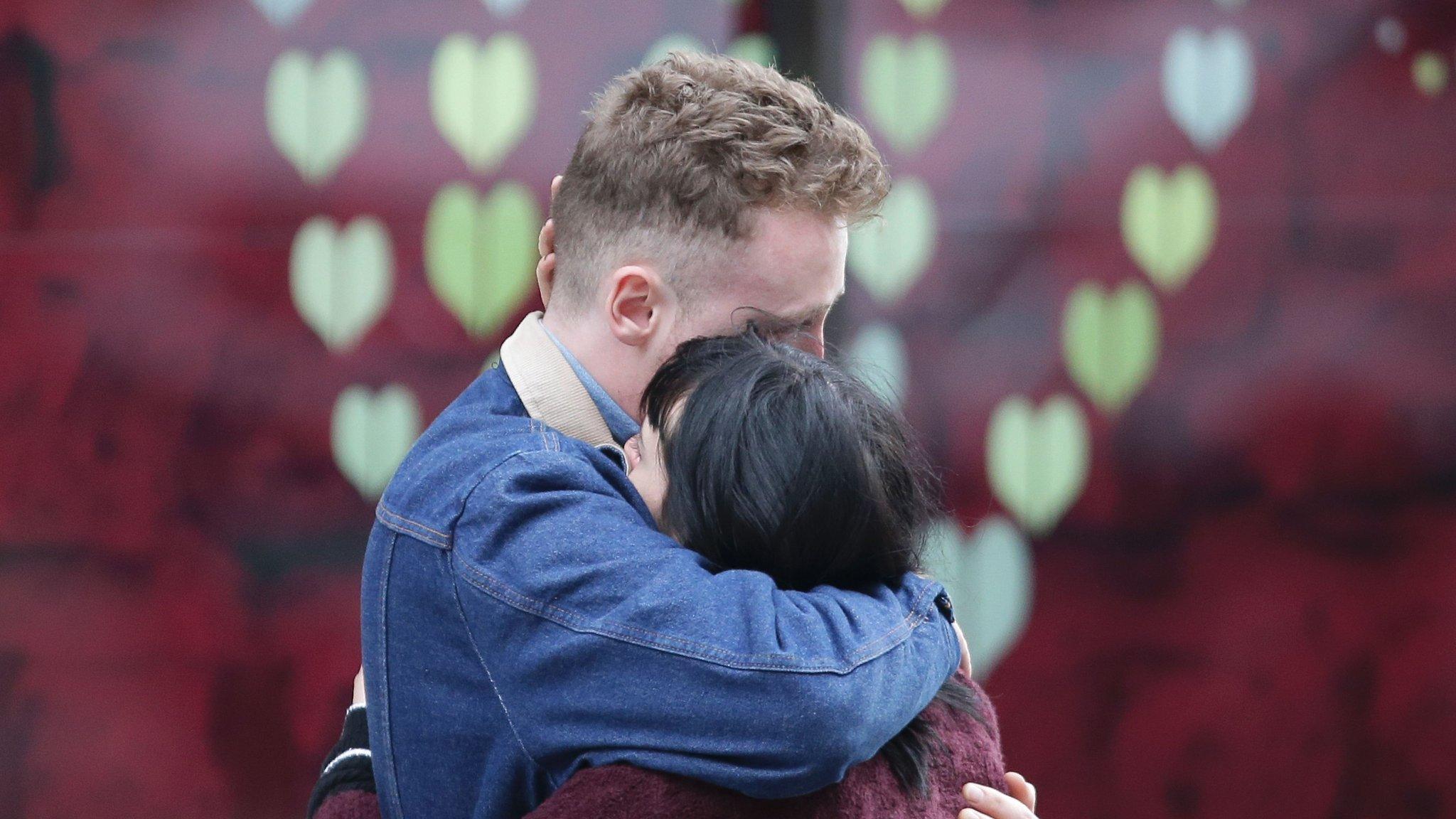
- Published22 May 2019
